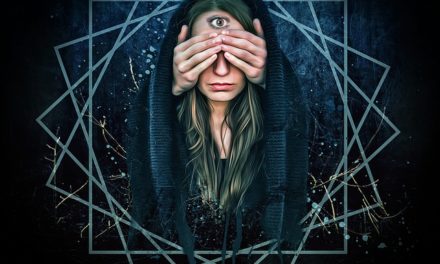
A study from University of South Florida shows that psilocybin could be a powerful PTSD treatment. | Image Source: Flickr User usarmyafrica
In a 1961 address to the UN General Assembly, President John F. Kennedy said, “Mankind must put an end to war before war puts an end to mankind.” These words still hold poignancy today, even beyond the battlefield. Coming home from war, a six-month deployment on a ship, or simply transitioning from a life in uniform to a life without one, can be difficult, and the statistics back it up. It’s estimated that a sobering 22 Veterans commit suicide every day.[1. “22 Veterans Commit Suicide Daily, The Battle Buddy Foundation, https://www.tbbf.org/22-veterans-commit-suicide-daily/08-2014#pk_campaign=GA2481?matchtype=b&keyword=veteran%20suicides&adposition=1t2.] Most of these veteran suicides are related to post-traumatic stress disorder (PTSD), which arises after a trauma in which your life is in danger or you feel that it’s in danger. According to the US Department of Veteran Affairs, 11 – 20 of every 100 Veterans in the Iraq War suffer from post-traumatic stress disorder (PTSD) in a given year. [2.”How Common is PTSD?” US Department of Veteran Affairs, accessed December 16, 2015, https://www.ptsd.va.gov/public/PTSD-overview/basics/how-common-is-ptsd.asp.] PTSD treatment is timely and needed, and fortunately, recent research from the University of South Florida suggests that psilocybin might be an unlikely candidate for the job.
Psilocybin and PTSD Treatment
Until recently, the “magic” part of psilocybin cubensis — better known by many as magic mushrooms — was thought to be solely related to their ability to take someone on a psychedelic voyage of spiritual revelation, fascination with the world around them, and profound introspection. But beyond these introspective benefits, new research is showing that in addition to this entheogenic mushroom’s visionary qualities — or perhaps in intimate conjunction with it — it has a biological effect on certain regions of the brain that is quite remarkable.
A 2013 study from the University of South Florida has found that psilocybin, the psychoactive component of magic mushrooms, is able to stimulate neurogenesis, which is the growth and repair of brain cells in the hippocampus. As contemporary researchers understand it, the hippocampus is the brain’s center of both emotion and memory. This regenerative effect was observed in mice who exhibited the ability to overcome fear conditioning far better than mice who had not been given psilocybin. The implications of this study are that magic mushrooms, a once-derided psychedelic which have already been shown to help treat obsessive-compulsive disorder, alcoholism, and nicotine addiction, may also be a powerful treatment for PTSD and similar conditions in humans.
A Study in Overcoming Fear
To test psilocybin’s effect on the hippocampus, researchers trained mice to be afraid of a conditioned stimulus in the form of an auditory tone that was accompanied by an electric shock. Over time, the mice learned to fear the tone because it was associated with an unpleasant electric jolt. Their fear response could be reliably measured by how long the mice would remain immobile in the presence of the tone, even when the shock was not administered. If the mice remained immobile for a long period of time, they were essentially stuck in a fear response that they were unable to unlearn, much like a person who suffers from wartime-related PTSD might react to gunshots or loud noises.
The three groups of mice that were tested included those injected with low doses of psilocybin, those injected with high doses of psilocybin, and a third group that received an inert saline solution. The abstract of the study, which was published in the scientific journal Experimental Brain Research, states that “Mice injected with low doses of [psilocybin] extinguished cued fear conditioning significantly more rapidly than high-dose [psilocybin] or saline-treated mice.”[3.”Effects of psilocybin on hippocampal neurogenesis and extinction of trace fear conditioning,” Experimental Brain Research, June 2, 2013, https://www.ncbi.nlm.nih.gov/pubmed/23727882.] It is interesting to note that the low dosage of psilocybin was by far the most effective in helping the mice to transcend their fears once the shock had disappeared, a clue that could be of use to both psychotherapists and would-be psychonauts in how to therapeutically use psilocybin in an effective manner.
Implications for PTSD Treatment and Beyond
While it is natural to respond to stressful or traumatic situations with a fight-or-flight response, those experiences can continue to haunt us long after the immediate threat is gone. PTSD is susceptible to being triggered with a memory or stimulus that makes the person relive the original trauma over and over again. This study is highly encouraging in showing that psilocybin is a powerful tool for breaking that cycle and repairing the parts of the brain that are associated with that fear response. We may soon see psilocybin mushrooms join the ranks of other psychedelics such as MDMA as an immensely effective treatment for PTSD and similar disorders. With 22 veterans a day committing suicide in the US, there has never been a more urgent need for new PTSD treatments, and we should follow the science, not the stigma, when considering psychedelics as treatment options.










